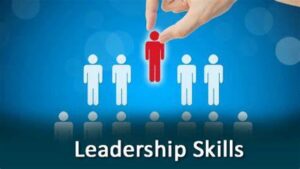
by Stuart Andrews
A leader’s role is to inspire their team and help them be their best selves. That means being open to feedback. The most effective business leaders are constantly adapting to changes in their environment. A hybrid world demands new ways of thinking and communicating. In this instance, effective global leaders will have to be outcome-oriented and unify their teams to collaborate effectively.
Of course, there will always be new challenges, and there will always be new tasks. Effective leaders need to remain open to learning, experimenting and adapting to new situations. Hybrid leadership is about balancing your voice with the voices of others, about having a vision and setting the course and about ensuring the stamina to see transformations through.
Above all other traits, effective leaders need to have integrity and a moral compass that guides their decision-making and their actions. According to a recent Gartner survey, only 24% of hybrid and remote workers report feeling connected to their organizational culture.
Managing In A Hybrid World
This changing business landscape requires different types of leaders who understand that “the old ways of doing business” are not effective in the new global economy.
More than ever, leaders need to be able to manage across departmental, cultural and geographical boundaries. They must not only be able to evaluate their global capabilities but also develop appropriate strategies for each country where they operate. Success in the global environment requires a strategic approach where the organization’s value chain is evaluated and capitalized upon. It also requires a long-term view where decisions are made with an eye to sustainability. In a world of globalization, environmental responsibility, ethics and social responsibility are core components of a successful strategy. Hiring and retaining good people is paramount to the new hybrid world.
There are five core characteristics to look for in effective leaders:
• Creativity: The ability to think logically and creatively, as well as critically.
• Courage: The ability to take risks.
• Curiosity: The drive to learn about others and to interact with different cultures and backgrounds.
• Confident humility: The ability to work with others and to “walk a mile in their shoes.”
• Collaboration: The art of working together in unity to achieve outcomes.
Each of these characteristics can change and is changing the way business leaders think and operate.
1. Creativity
The ability to think outside the box is an important skill even in a strictly business sense. A hybrid world is a world where one must make tough decisions quickly, make exceptions to the norm and adapt to constant changes in technology and customer preferences. One needs to think creatively in order to assess and analyze new information. This is particularly important as never before has information and knowledge been so accessible and “out there.”
2. Courage
To lead in the world today, leaders have to be courageous and able to do what they said they were going to.
One classic example of this is the innovator Steve Jobs. Jobs could have followed the crowd and developed the iPod as just another MP3 player. However, his company took a risk by developing the iPod with a touchscreen interface and the capability to hold an entire music library. They dared to step out of the comfort zone, and in so doing, they transformed the iPod and made it into a must-have product.
3. Curiosity
The world is a different place than it was even five years ago. Leaders need to adapt quickly to cultural differences and expectations.
Why do hybrid work environments work better for some organizations than others? Why are certain customers often more demanding than their counterparts in other areas of the globe?
To stay on top of things, leaders need to keep up to date with emerging trends and technological and social developments and consistently assess their business environment.
4. Confident Humility
Leadership in a hybrid environment works because a leader never stops learning. It means being willing to adapt to different circumstances, to “get their hands dirty” and to be flexible and open-minded.
Confident humility is about learning from the experiences of the people one leads. Leaders can learn a lot from their employees:
• What are the biggest challenges?
• What are the most common mistakes?
• What should we be doing differently?
• Which of our processes could be improved?
Confident humility is about recognizing that one can be wrong and that lessons can be learned from failure, as opposed to clinging to a failed strategy or practice.
5. Collaboration
The final and most central trait for leading in a hybrid world is collaboration. Given that global collaboration requires sharing information, habits and values across cultures, leaders need to know how to build relationships across diverse business communities to achieve successful outcomes for all stakeholders. To achieve great collaboration, empathy, flexibility and openness are imperative. Leaders need to be able to build strong relationships with different teams, understand and adapt to their different preferences and accommodate people’s needs, values and beliefs.
Collaboration is not just about sharing information and ideas. It is also about listening and empathizing with others. It is about recognizing that while people may dress and look differently, they are human beings and should be treated accordingly.
Effective leaders can create a culture in which people feel comfortable sharing ideas, challenging each other and taking risks. They know how to motivate others, how to listen and when to stay quiet, how to promote trust and how to inspire individuals to reach their full potential. Leadership in a hybrid world entails a combination of behaviors that can be challenging to achieve. The traits described above are by no means easy to achieve; however, they are fundamentally important for success. It is about ensuring your leaders and managers are people-oriented, that they know how to effectively communicate across cultures and that they can navigate successfully through disruptive change.
Source: Forbes




